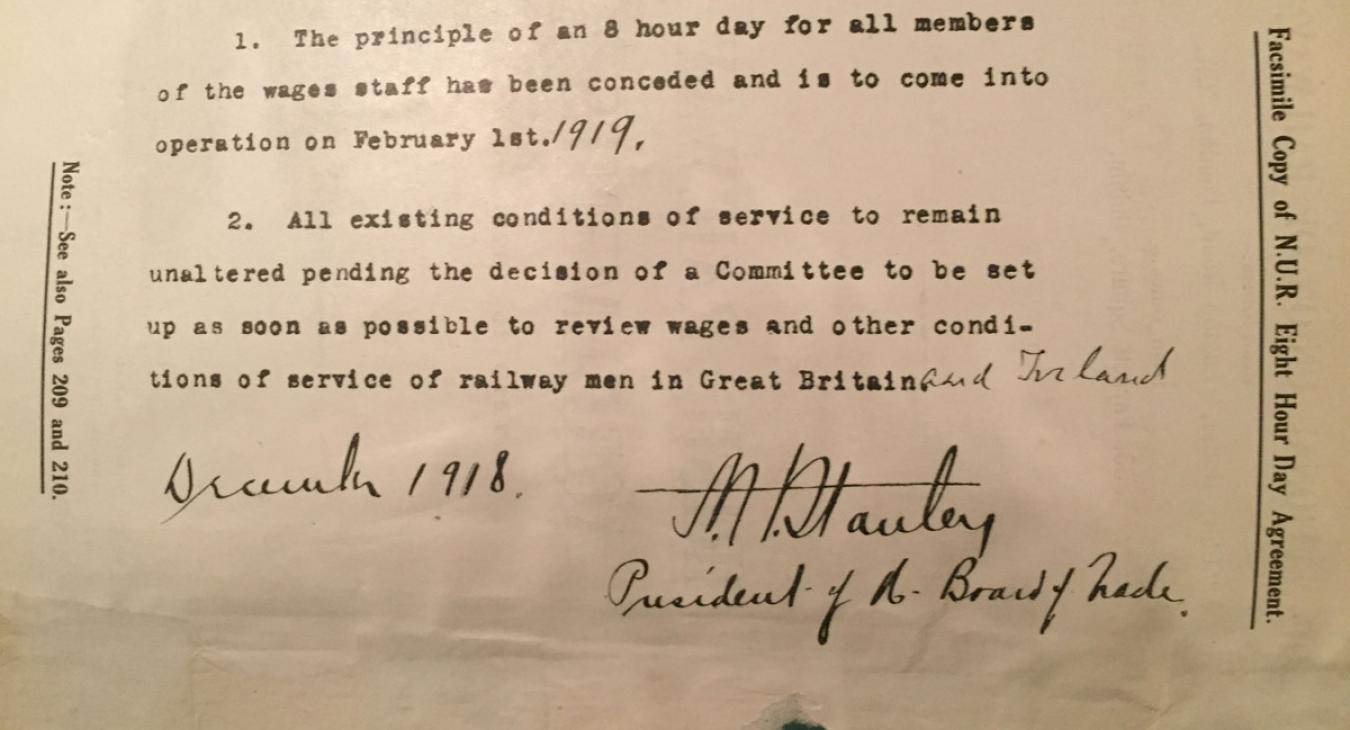
Dr. Peter Rigney recalls that the first day of February 1919 marks a major anniversary for Irish workers.
It is unrelated to the first Dáil or the struggle for independence and is international in its context. It marks the coming into operation of the eight hour day on the Irish Railway system, instead of a ten hour working day with a break for breakfast. The railways were then the largest single private sector employer in Ireland operating workshops, hotels and canals in addition to their core business. Railway workers were represented by three unions- the National Union of Railwaymen, the Railway Clerks" Association and the Associated Society of Locomotive Engineers and Firemen.
The eight hour day had been a long standing demand of the labour movement. Robert Owen the English socialist had advanced this idea as early as 1817 with the slogan "eight hours work, eight hours rest and eight hours leisure". This remained a slogan for much of the nineteenth century, but it's implementation was brought about by the end of the First World War. Clemenceau, the French Prime Minister, remarked that the eight hour day was one of the long standing claims of French democracy and after a war, in which so much blood of the ordinary soldier has been spilled, it is morally impossible not to concede his claim.
British unions pushed Lloyd George hard for the concession of the eight hour day as soon as the war concluded. The document you see here conceded the eight hour day on the British Railway system in December 1918. Ireland was written on to the agreement document in pen and ink as an afterthought. It is said that the handwriting is that of JH Thomas, General Secretary of the National Union of Railwaymen.
The eight hour day increased employment opportunities just as many thousands of soldiers were being demobilised. It was a 48 hour week as Saturday was a working day. The old ten hour day with it's six thirty start and break for breakfast was done away with. The increased leisure that workers had is inextricably linked to the rise of leisure industries such as Cinema and radio in the twenties and thirties.

